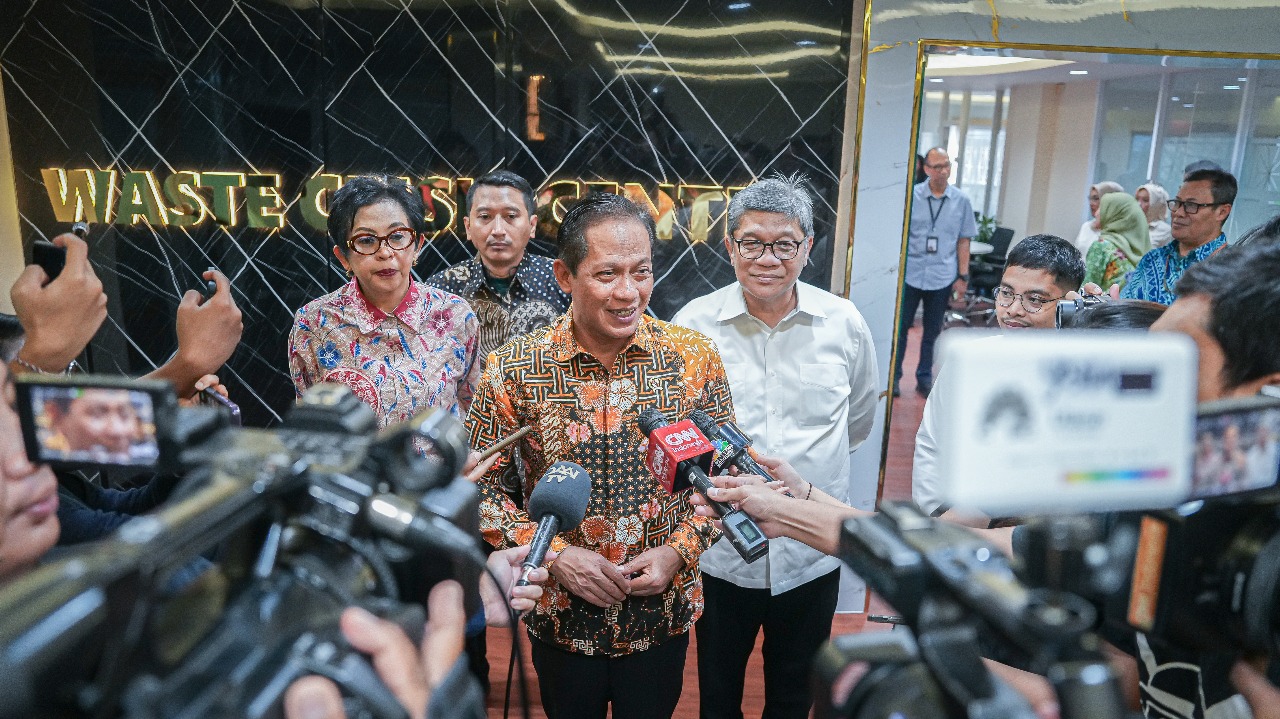
Product walkthrough, trial, POCs, enterprise offering, support and more. Speak with one of our specialists.


Product walkthrough, trial, POCs, enterprise offering, support and more. Speak with one of our specialists.

Policy and industry News

Good news comes from the Ministry of Environment. Minister Hanif Faisol Nurofiq officially launched the Waste Crisis Center (WCC), a national command hub designed to accelerate waste management efforts across Indonesia. The establishment of WCC reflects the government’s strong commitment to addressing the waste crisis that remains a major challenge from the household level up to the national scale.
“We want WCC to be the answer to all waste problems in Indonesia — from the smallest to the biggest,” said Minister Hanif with optimism during the WCC inauguration in Jakarta, Thursday, July 31, 2025.
WCC serves as a national coordination center that aligns strategies between the central and local governments in managing waste. Its duties include drafting strategies, monitoring implementation, and providing technical assistance to regional authorities.
WCC’s four main roles:
WCC also acts as a communication hub for government, communities, and businesses. Technology innovators and academics can propose solutions, while citizens can directly report waste-related issues to WCC.
This initiative goes beyond symbolism. WCC will integrate technology and data innovation to help achieve a clean and waste-free Indonesia.
Already, 343 landfills (TPA) have been sanctioned for continuing open dumping practices. Minister Hanif has assigned ministry officials to supervise and assist improvements in each region.
“Every Echelon II official in the Ministry of Environment must oversee 10–11 districts or cities,” he explained.
A total of 514 districts/cities are now under the Ministry’s coordination. The government has given six months for problematic regions to improve their waste management practices.
The government has set a target for 100% of Indonesia’s waste to be collected and properly managed by 2029. This year’s milestone is 51.2% waste management, but so far, only about 10% has been achieved. The road ahead is long, but the direction is clear.
To reach this goal, the Ministry is collaborating with universities through the Rector Forum involving 41 higher education institutions. All stakeholders — academia, local governments, communities, and businesses — are invited to work together under the pentahelix framework.
Support the national waste management efforts by starting with simple actions:
Together, we can build a clean, healthy, and waste-free Indonesia.






















Jejakin’s green programs combine high-tech monitoring, biodiversity restoration, and community-led initiatives to deliver powerful, sustainable change across ecosystems.








